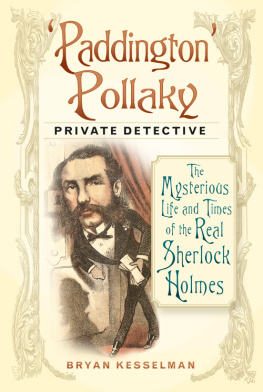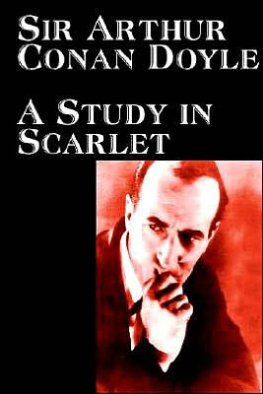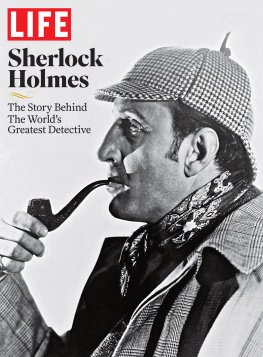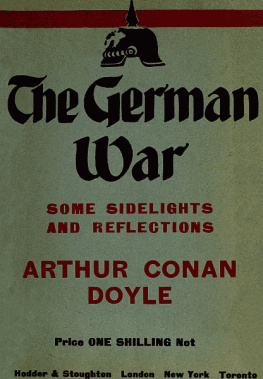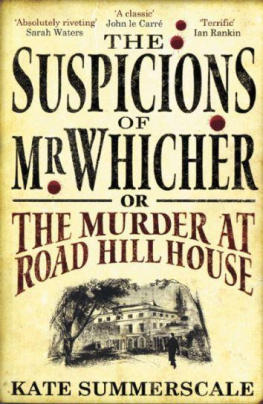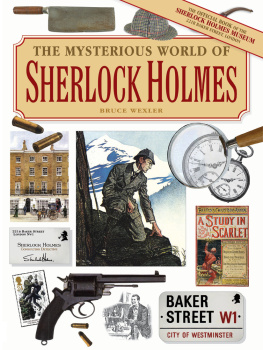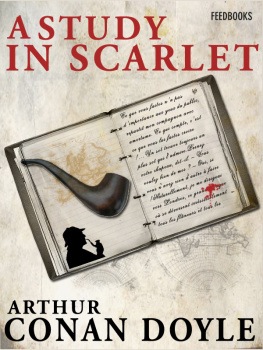Alicia Clarke Henry S. Sanford Papers, Sanford Museum
Letter written by C.L. Dodgson (Lewis Carroll) reprinted by permission of United Agents on behalf of Morton Cohen, The Trustees of the C.L. Dodgson Estate and Scirard Lancelyn Green
Held by the Beinecke Rare Book and Manuscript Library, Yale University.
Quotations from the Toni and Gustav Stolper Collection 18661990 and the photograph of Pollaky courtesy of the Leo Baeck Institute, New York
2010 Photograph of Paddington Green houses Pre-Construct Archaeology www.pre-construct.com

S ome time ago I was driving my car on the way home from a singing engagement, singing the Colonels song from Gilbert and Sullivans Patience to myself. This involves a long list of people of the type to make up a heavy dragoon, and includes the name Paddington Pollaky. I couldnt remember who he was I had known once. I decided to check at the earliest opportunity. Who would have guessed that this would lead me to write an opera about him as well as this book?
My initial researches led me to look at the Agony Column of The Times . Here was subject matter for musicalisation. Why not write an opera about the mysterious people who advertised there? What if Paddington Pollaky, who was one of them, was an important character in the piece? What if he were the main character? I began to work out a plot. This involved a certain amount of research into his life. I gathered a huge amount of facts, some of which had not been examined much before, and certainly not placed in juxtaposition with each other. It seemed that a biography was inevitable. There were frustrations as well as successes, and you will read about some of them in the following pages. I have tried to find original sources for everything, and not to rely only upon rumour and tradition. Where there is doubt, I have indicated it.
An investigation into Pollaky and his life must necessarily be hampered by the fact that he destroyed all his case records. Nevertheless, plenty of material exists, buried away in newspaper and court reports, and hidden in archives in various cities. Among these are a number of documents, which, if not of huge historical import, lend a new colour to certain famous events of the past.
He was a fascinating character. Described variously as Detective, Private Investigator, and Adventurer, he was also an Alien Hunter (aliens of the foreign kind), and evidently something of a busybody, but one who seems genuinely to have had the best interests of others at heart. He himself often felt frustrated at the stubbornness of some of those around him but more of that in its place.
W.S. Gilbert mentions Pollaky in three of his dramatic pieces No Cards , An Old Score , and most famously, Patience . Even Charles Dickens and Lewis Carroll wrote about him. You can read about these references in Chapter 12 and in the Appendices.
My voyage of discovery has taken me to a number of archives in London; involved numerous emails and letters to archives and copyright holders in England, America, Germany, and Slovakia; and involved a trip to Bratislava in an attempt to uncover any little detail of Pollakys early life which might remain in his birthplace.
I have quoted letters, newspaper articles, and reports at length, preferring to let Pollaky and those who wrote about him speak for themselves, but I have added commentary as guidance to these passages when necessary. Many of the items can be read as stand-alone short stories, worthy of dipping into, although I hope that the reader will make an effort to get to know this unusual man by following his story in its entirety. The book almost follows a chronological order, but inevitably if one wishes to follow the threads of a life in a connected way, some concessions have to be made. Being naturally averse to endnotes, and in particular to wretched jargon (e.g. ibid . and loc . cit .), I have included information that might be put there in the body of the text. There is, however, a comprehensive bibliography at the end. All transcriptions of handwritten letters were made by me (except for that of Lewis Carroll). I have not indicated pagination in those letters, nor have I kept the original number of words per line.
But firstly to Mystery Number One who was Ignatius Paul Pollaky?
In 1909 George Routledge & Sons published a book by James Redding Ware called Passing English of the Victorian Era . The following definition appears on page 185:
O Pollaky ! ( Peoples , 1870). Exclamation of protest against too urgent enquiries. From an independent, self-constituted, foreign detective, who resided on Paddington Green, and became famous for his mysterious and varied advertisements, which invariably ended with his name (accent on the second syllable), and his address.
This definition by no means tells the whole story, but its a start. Peoples 1870 refers to the origin of the expression (a slang word of the man in the street), and the year it came into use. We learn that Pollaky should not be pronounced as Poll aky (as in the song from Patience ) but Poll ak y, with the stress on the second syllable. Ware is wrong on one count, though: Pollaky did not invariably finish his advertisements with his address (and, who knows, may not always have used his name either).
Bryan Kesselman, 2015
1

P ressburg, Hungary, 1838. Summer late afternoon. School over, a 10-year-old boy and two friends climb in and around the castle ruins that look out over the Danube, its high walls dominating the view of the city from the other side of the river. Their chatter is all nonsense, of course, to everyone but themselves; and their shrieks of laughter as they imitate their teacher who talks through his nose and is often angry because the class doesnt pay attention in these hot days, echo around the castle walls. Then, suddenly, a womans voice calls, Ignatz, come at once, your father wants you to carry his violin.
Coming, he calls.
Just look at your clothes! Go and change at once, dont let your father see you like that.
And so on. Is this a possible scene from the boyhood of Ignatius Paul Pollaky? So few details exist of his early life in Hungary, that I have made this up. All that follows, however, is fact. In this chapter, I have detailed a little of the detective work I attempted in my efforts to uncover previously unknown facts.
In 1914, Ignatius Paul Pollaky applied (for the second time) to become a British Citizen. He told Detective Superintendent Charles Forward of the Brighton Police that he was born in Pressburg (Pozsony), Hungary, on the 19 February 1828.
His father was Joseph Francis Pollaky, a Common Councillor according to his 1861 Marriage Certificate, or a Private Correspondent and Musician according to his 1914 naturalisation papers as recorded by Detective Superintendent Forward.

